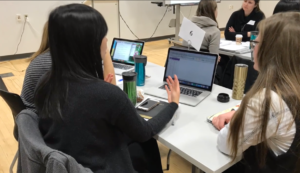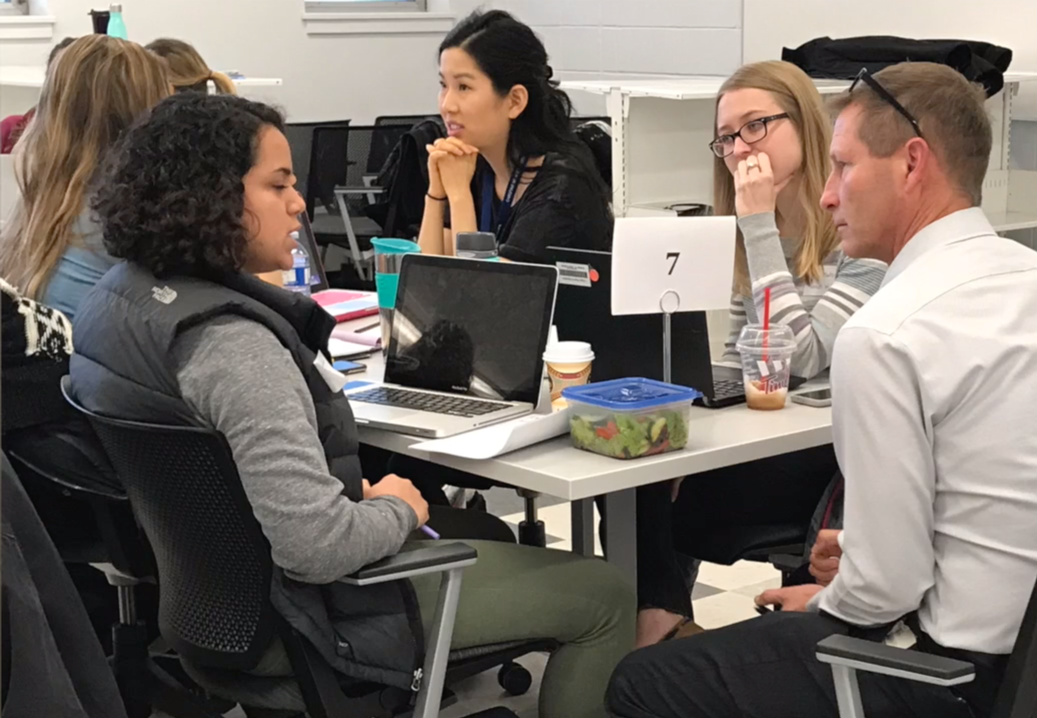Blog
Supporting Teachers New to Teaching Through Continuous Professional Learning
Dr. Sharon Friesen October 10, 2019 Research and Education
Making the transition from an initial teacher education program into coping with the demands of being employed as a full-time teacher is daunting for many new teachers. For many new teachers adapting to a specific school context, learning how to navigate established traditions such as “staffroom politics”, negotiating the scrutiny of more experienced teachers, figuring out how to get needed supplies and place orders, along with planning instruction, marking, and establishing relationships with students, other teachers, office staff, and caretakers can be somewhat overwhelming. Clearly those initial years of being a “real” teacher are not for the faint of heart.
The process of making the transition to “real” teaching begins with the teacher candidates’ field experience placement. As good as that experience might be, it cannot fully prepare a teacher candidate for the demands and responsibilities of full-time employment. One of the ways that many countries are assisting teachers make the transition to the classroom is by creating a continuum of teacher professional learning that resonates with the focus on pedagogy and assessment teachers experienced in their field placement (OECD, 2019).
The goal is to allow beginning teachers not only to have opportunities to practice and refine teaching skills or witness “judgement in action”, but also to engage in creative and critical reflection and evaluation of teaching and learning models. When critical reflections of “field experiences” draw on research evidence, and student data, and explicitly address the key role of experience in context, teacher learning is said to be more “grounded in practice”. (OECD, 2019, p. 109).
In the fall of 2018, consultants with Galileo Educational Network (Galileo) designed a series of year-long professional learning sessions for 450 teachers new to the profession in the Calgary Board of Education. The professional learning sessions were designed to engage new teachers in a collaborative inquiry-based approach to improving their instructional and assessment practices by critically examining and reflecting on their practice while examining student work from their own classrooms.

Drawing on the principles of design, we at Galileo have created an approach to professional learning which we call design-based professional learning. Our approach to professional learning is focused on strengthening and improving practice through an iterative process of design. We draw upon a design adapted from the double-diamond developed by the British Design Council in 2005 for the professional learning (Dorst, 2015). We draw upon a number of researchers to inform the design (Bereiter & Scardamalia, 2014; Bransford, Brown, & Cocking, 2000; Kaput et al., n.d.; Katz & Dack, 2013; Timperley, Wilson, Barrar & Fung, 2007). The professional learning requires teachers to engage in a sustained collaborative inquiry working with colleagues to improve the practices of the community and their own practice. Engaged in the process of radical collaboration and prototyping, teachers actively participate in a process of systematically examining colleagues and their own practice based on evidence they bring forward from their classrooms (current practices) and set goals for their practice (improved practices) based on the learning needs of their students; they receive feedback from colleagues and researchers (improvable ideas); and (c) reflect on the community’s progress as well as their own progress (Bereiter & Scardamalia, 2014; Katz & Dack, 2013; Timperley, 2011). Our approach to professional learning is consistent with the approach advocated by OECD (2019) “early professional development involves research-based reflections on teaching and learning, and should be embedded in continuous professional learning culture” (p. 12).
Findings from the research study, New Teachers Implementing Professional Practice Standards: Research Brief, indicated that the professional learning for new teachers strengthened their pedagogical capacity.
Statistically significant growth for new teachers was shown over one-year in four competencies: (1) demonstrating professional body of knowledge (through planning and designing learning activities, using instructional strategies to engage students in meaningful learning activities, applying assessment and evaluation practices); (2) engaging in career-long learning, (3) establishing inclusive learning environments when designing learning, and (4) applying foundational knowledge about First Nations, Métis and Inuit to Learning Designs. (Brown, Roberts, & Beck, 2019, p. 2).
The research is clear that supporting the growth of teachers, including new teachers to become effective pedagogues who are adept at using contemporary assessment practices to guide and improve student learning and inform their teaching is critical to improving student learning, creating a strong professional learning culture, and retaining high quality teachers (Barbor & Mourshed, 2007; OECD, 2019). “When induction and support programmes are integrated in a professional learning culture, schools are able to engage new teachers in innovation and continuous school improvement” (OECD, 2019 p. 13).
References
Barber, M. & Mourshed, M. (2007). How the world’s best-performing school systems come out on top. McKinsey & Company.
Bereiter, C. & Scardamalia, M. (2014). Knowledge building and knowledge creation: One concept, two hills to climb. In S. C. Tan, H. J. So, J. Yeo (Eds.) Knowledge creation in education (pp. 35-52). Singapore: Springer.
Bransford, J., Brown, A., & Cocking, R. (2000). How people learn. Washington, DC: National Academies Press.
Brown, B., Roberts, V., & Beck, J. (2019). New teachers implementing professional practice standards: Research Brief.
Dorst, K. (2015). Frame creation and design in the expanded field. She Ji: The Journal of Design, Economics, and Innovation, 1(1), pp. 22-23. DOI: https://doi.org/10.1016/j.sheji.2015.07.003.
Kaput, J., Bar-Yam, Y., Jacobson, M., Jakobsson, E., Lemke, J., Wilensky, U. and collaborators (n.d.). Planning documents for a national initiative on complex systems in k-16 education. Retrieved from https://necsi.edu/toward-systemic-educational-change-questions-from-a-complex-systems-perspective
Katz, S. & Dack, L. (2013). Intentional interruption: Breaking down learning barriers to transform professional practice. Thousand Oaks, CA: Corwin.
OECD (2019). A flying start: Improving initial teacher preparation systems. Paris, FR: OECD.
Timperley, H., Wilson, A., Barrar, H., & Fung, I. (2007). Teacher professional learning and development; Best evidence synthesis iteration. Wellington, New Zealand: Ministry of Education. Retrieved from http://www.educationcounts.govt.nz/__data/assets/pdf_file/0017/16901/TPLandDBESentireWeb.pdf
